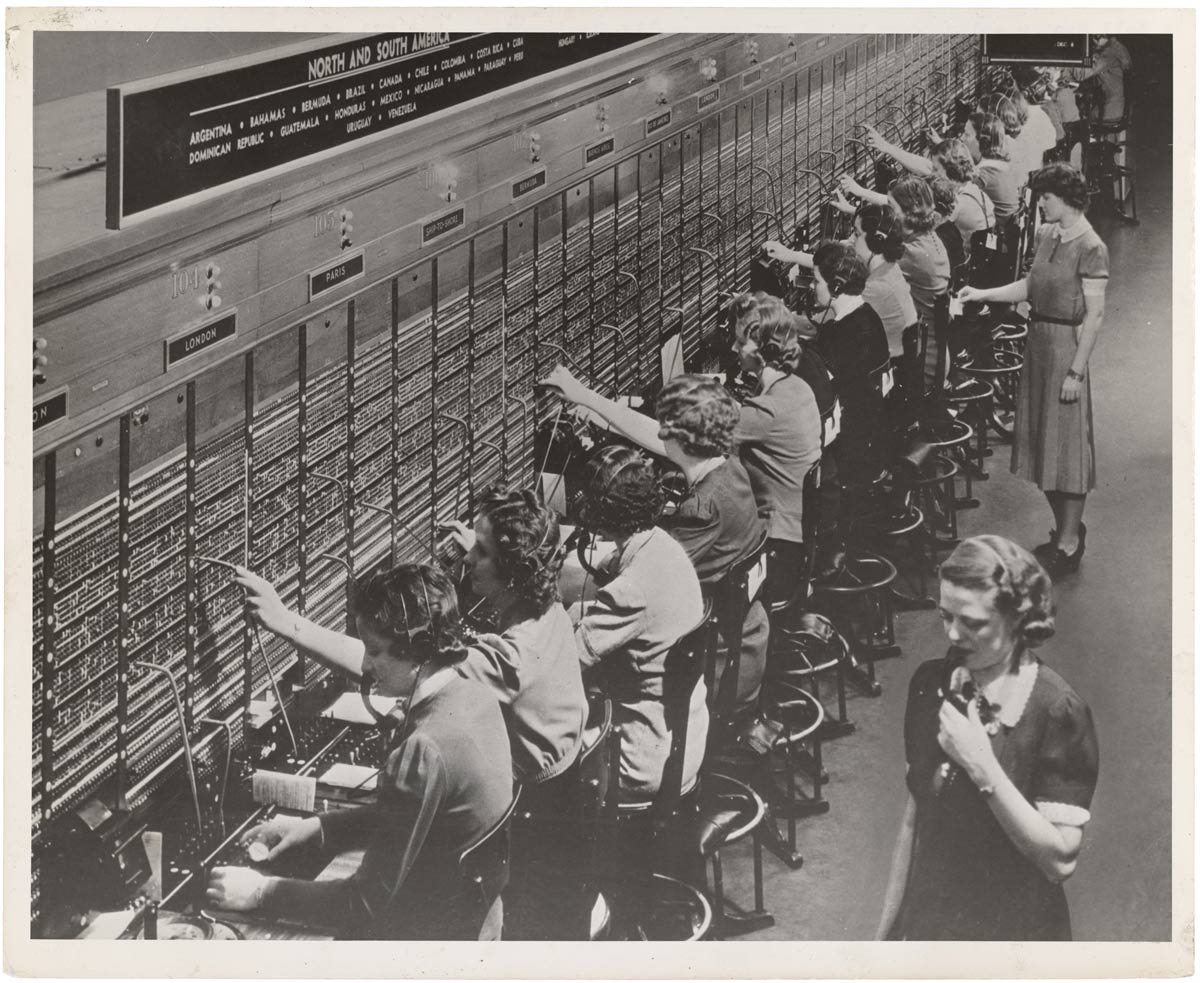The Disembodiment of Work in Severance and Several People Are Typing

For a variety of reasons—I am getting old, I love to work in my bed, I haven’t done yoga since sometime in early 2020—I find myself occasionally very sore from a day of work. This is probably because my posture is terrible; I hunch over my laptop constantly, only reminded to straighten up when I see those silly little Instagram posts that remind you to unclench your jaw, sit up straight, and take three deep breaths. Once I do these things, I’m always struck by how odd it is that I didn’t realize to do them on my own. I’m totally out of touch with my body while I work. I’m immersed and focused, which on some level feels good, but it has physical consequences.
While it’s far from a novel observation to say that many jobs require a level of detachment from the body, looking at the way two contemporary novels, Severance and Several People Are Typing, imagine work proves an interesting complication. The disembodiment of contemporary work culture has its limit—but for these novels, it also has its promise.
If Ling Ma’s Severance is the great pandemic novel—published in 2018 and eerily prescient—Calvin Kasulke’s Several People Are Typing (2021) is the great work-from-home novel. Several People Are Typing is set entirely in Slack, a workplace messaging platform, and follows Gerald, an employee at a PR firm in New York City, whose consciousness gets trapped in Slack while his body remains in the real world. His coworkers assume he’s just exploiting the company’s new work from home policy, since, after all, he keeps working from inside Slack. Severance, on the other hand, is centered on Candace, a Bible publisher in New York City who continues to work for the publisher well into the apocalyptic present, which is populated by the “fevered”—zombies—whose behavior is marked by a feverish repetition of the same tasks. She takes up with a group of survivors, but this setup is far from a safe haven—and in fact looks much like any other workplace, rife with tensions and a boss who doesn’t understand his employees. Both Gerald and Candance keep working in truly unprecedented times. Together, they ask us if it is easier to imagine the end of the world—or a consciousness uploaded to Slack—than to imagine work that doesn’t detach us from ourselves.
Gerald and Candace both find work boring and stifling. Work demands that they detach from their bodies. Candace sits down at her desk and reflects that “once I started, I was good at losing myself. I popped some Tylenol, and the morning passed in a blur. I answered emails. I measured spine widths to the exact millimeter…I don’t remember if I took lunch or not.” Work is a numbing mechanism: like the Tylenol she pops, working helps Candace to feel less, to be unaware of the physical world around her. Gerald, too, works hard so as not to feel: once trapped in the Slack server, he is so extraordinarily productive that his boss asks him to write a blog post about the efficiency of working from home. With “nothing else to distract me…except being trapped”—without a body—Gerald becomes a model employee. Their disembodied work is not so much painful as benumbing, a distraction from the world (or lack thereof) around them.
The exploitative system they work in doesn’t just require but rewards this kind of detachment. Jonathan, Candace’s boyfriend, expresses his hatred for the corporate system: “If you are an individual employed by a corporation or institution…then the odds are leveraged against you. The larger party always wins. It can’t see you, but it can crush you. And if that’s the working world, then I don’t want to be a part of it.” While Jonathan can (and does) opt out, Candace, however, does not—she appreciates the affordances of work. For Candace, the crush of disembodiment can feel like a gift. Even in the apocalyptic present of Severance, work is a balm for Candace, a distraction. The group of survivors that she lives with go on “stalks,” during which they scavenge for food and goods in empty houses—something Candace looks forward to: “Every time we stalked, this feeling would come over me…I would forget where I was or why I was there. I would get lost in the taking of inventory, with the categorizing and gathering, the packing of everything into space-efficient arrangements in the same boxes…It was a trance…It is the feeling I like best about working.” Candace moves from the past, the “would” and “was” of the work of stalking, to the present tense, emphasizing the continuation of this feeling. Such a trance-like state is the best thing about work to Candace, a tide that carries her from her regular life to the unprecedented time of the apocalypse.
Work provides a constant for Gerald, too, who is (quite rightly) stressed about being stuck in a server forever. The digital realm is something of an abyss for him: “You can just scroll and scroll, and it won’t stop until you do. We call it ephemera, or at least I did before. And really, that’s a mistake. It cheapens it. We love to say that digital is fleeting like a sunset, but these scraps of ourselves we fling into the ether will outlive most of us, like the sun.” Because the novel only takes place in Slack, we only know people through their workplace communication. Yet even the “ephemera” of these messages proves to be far from meaningless: they track people forming unlikely friendships, supporting each other, and, most shockingly, falling in love. In this way, the peril of being disembodied seems a bit like transcendence: “it’s not that I’m having trouble / more like, it’s weird to think about ‘seeing’ things as a sort of disembodied consciousness / but this is the most beautiful thing I’ve ever seen / ‘seen’ / seen.” For Gerald, there is a pleasure even in distraction from your body, in detachment—it allows access to different modes of “seeing” that are not really seeing. Being in Slack affords him a wildly unique and fully sublime view of the world, a perspective that changes him forever, and not only in traumatic ways. There is humor and love and beauty to be found right within a business communication platform.
In the office during a pandemic or suspended in disembodied form in digital consciousness, both Candace and Gerald take solace in the work in front of them, finding beauty and pleasure and comfort in routine. Embracing work as a form of distraction, they sink into the flow of working, and thus into a bit of normalcy in the face of stressful events in their lives and immediate surroundings. Together, Severance and Several People Are Typing suggest that to detach from the world, to get some space from your own body, might not always feel like alienation—sometimes, it might feel like a break.
I find this conclusion a bit perplexing, perhaps because Severance and Several People Are Typing are two novels that make the drudgery of work so clear. Yes, capitalism’s exploitative toll is enacted on the body. But both texts ask us to think about what this detachment might offer. For Gerald, being stuck in Slack makes him markedly more productive—but it also affords him moments of surprising vision and beauty and an appreciation for the digital realm as a space of connection, however limited. Candace, too, muses that “to live in a city is to take part in and to propagate its impossible systems. To wake up. To go to work in the morning. It is also to take pleasure in those systems because, otherwise, who could repeat the same routines, year in, year out?” Work sucks, Gerald and Candace know. But uniquely, they look at the “impossible systems” of work and take pleasure in them, as grand coping mechanisms if nothing else. Work will always be there to take you away from your body—it’s impossible and crushing and full of drudgery and pointlessness. But if you can’t imagine anything outside of this, perhaps you can imagine ways to find pleasure, however small, right inside it.


